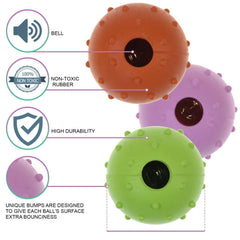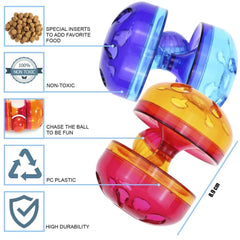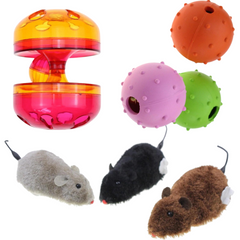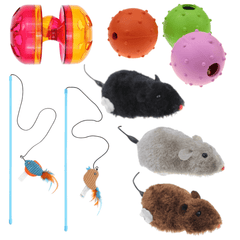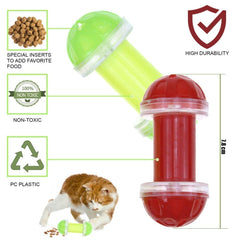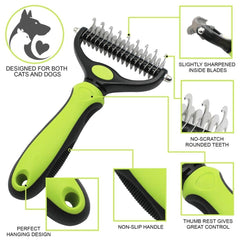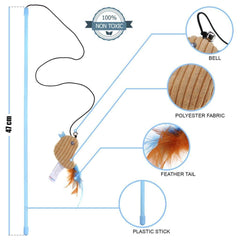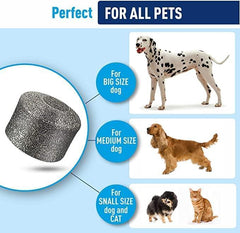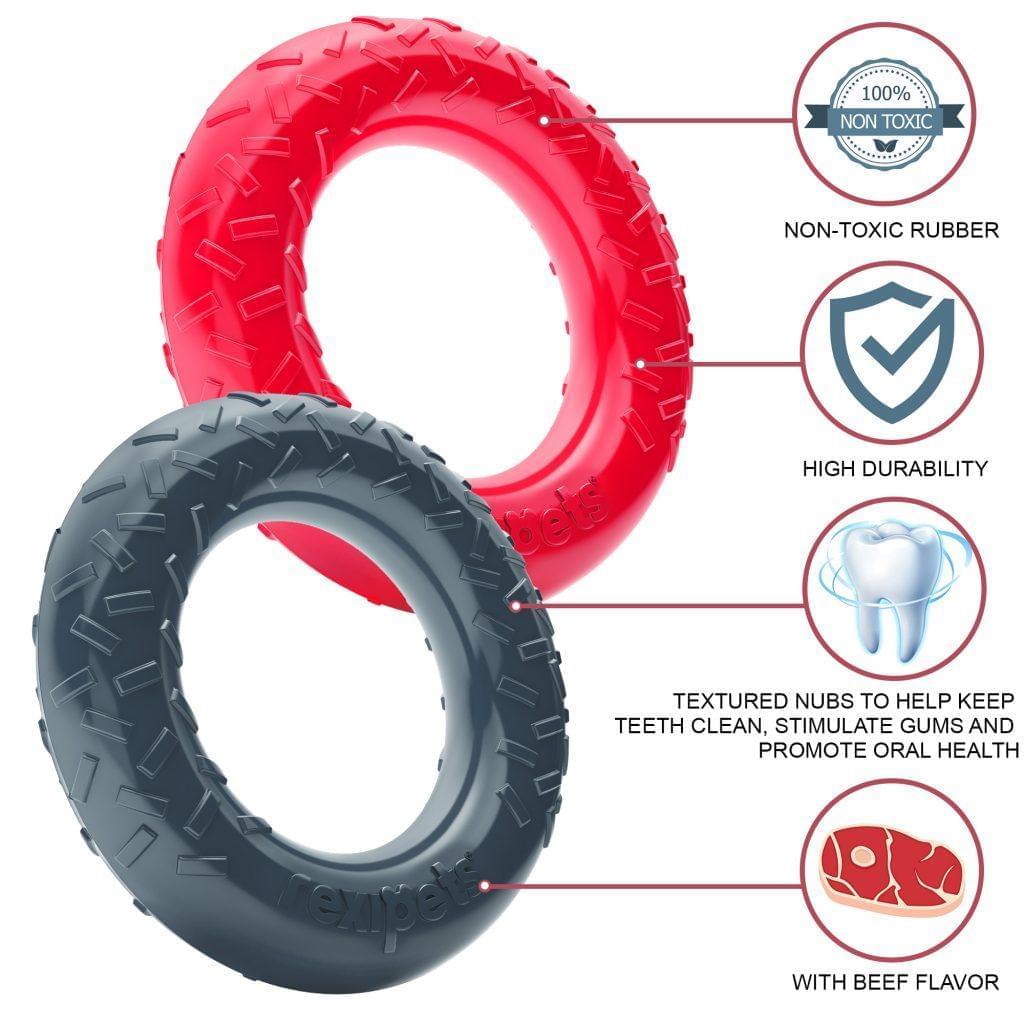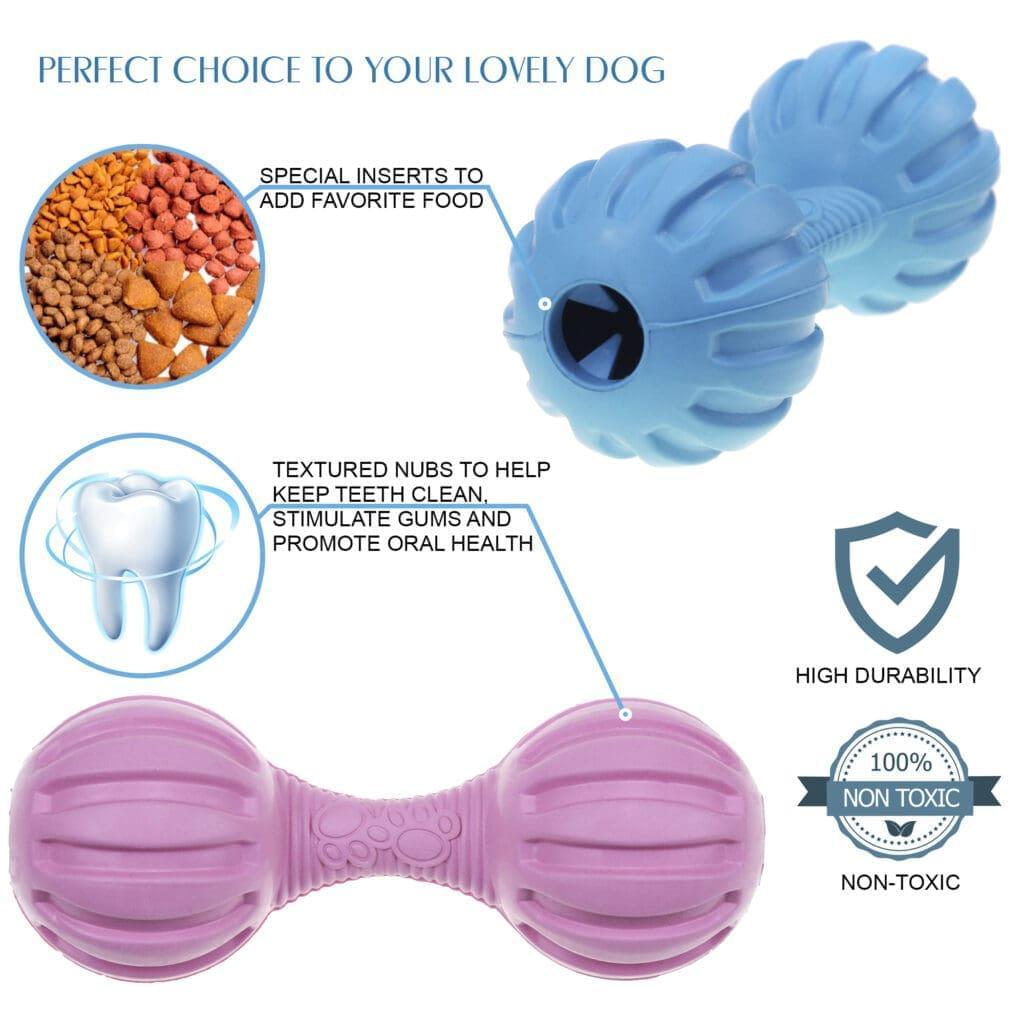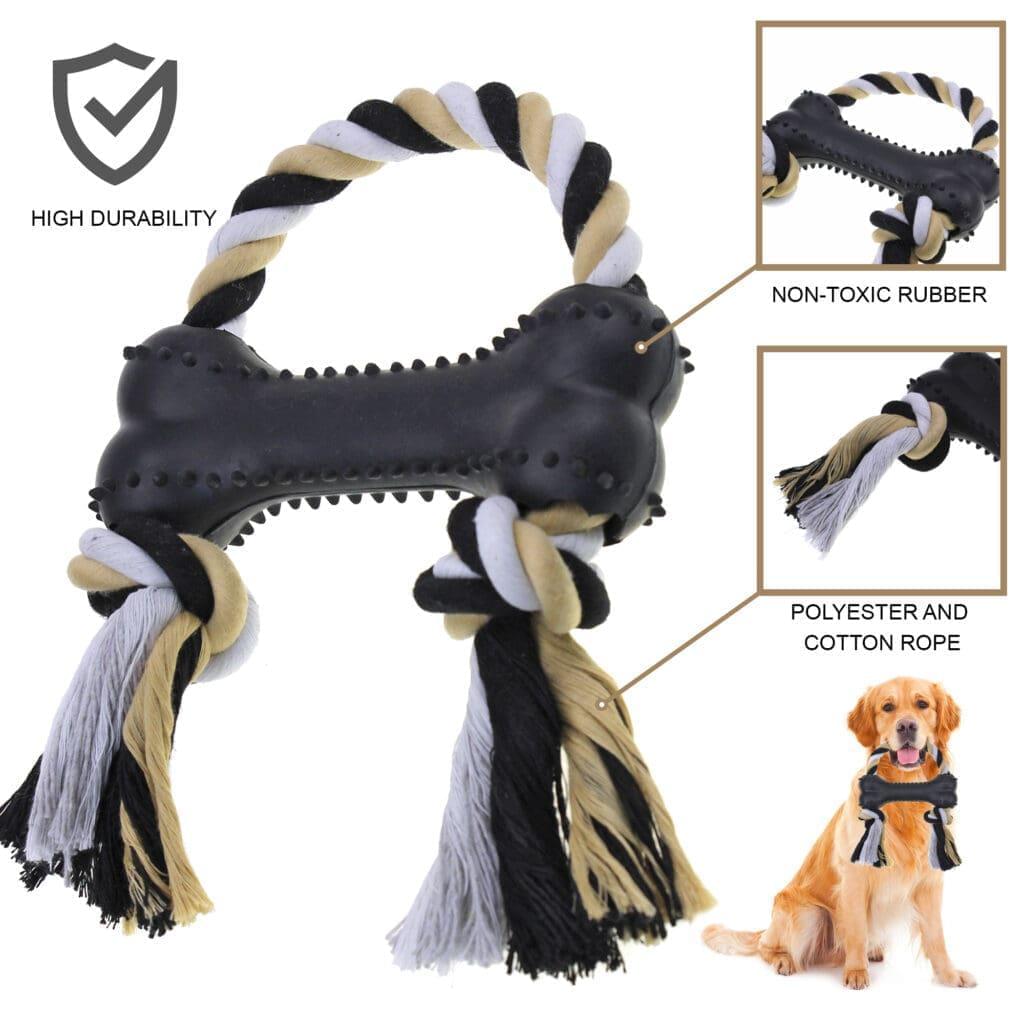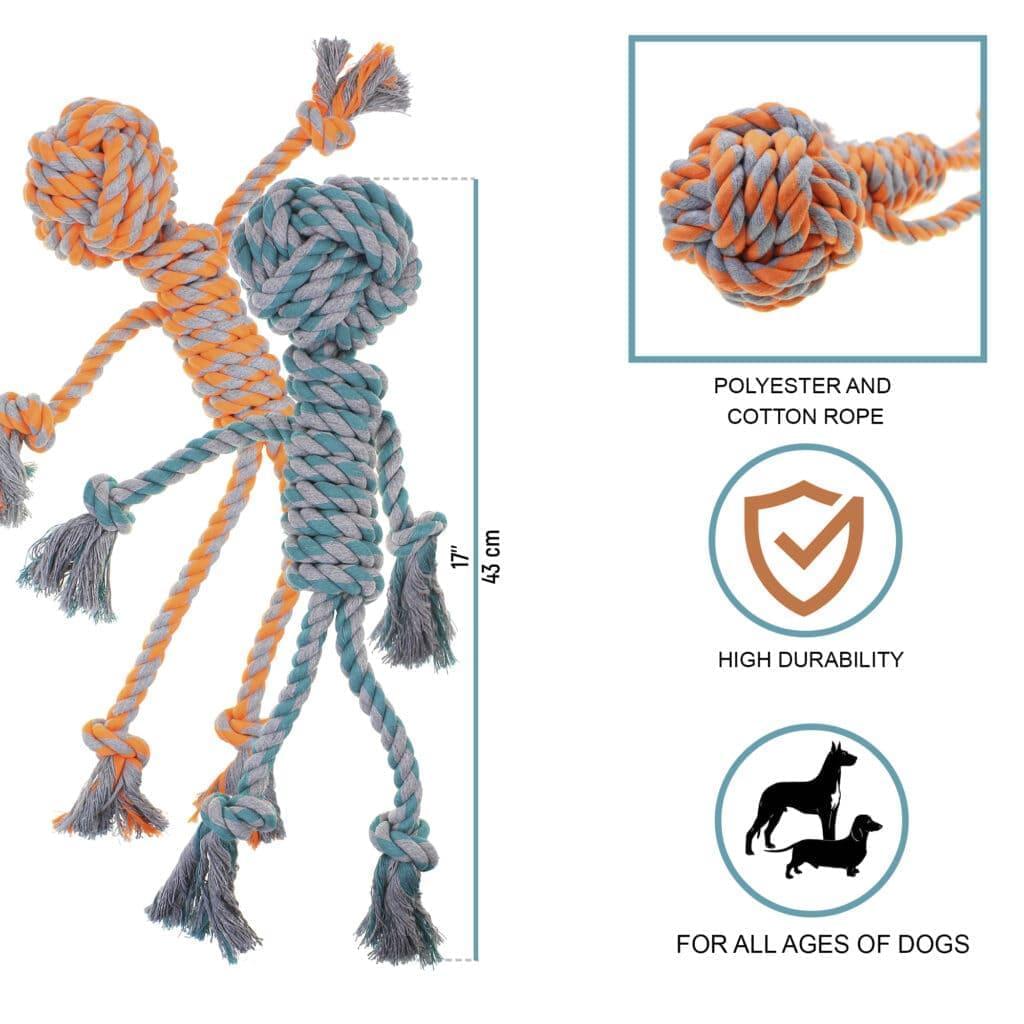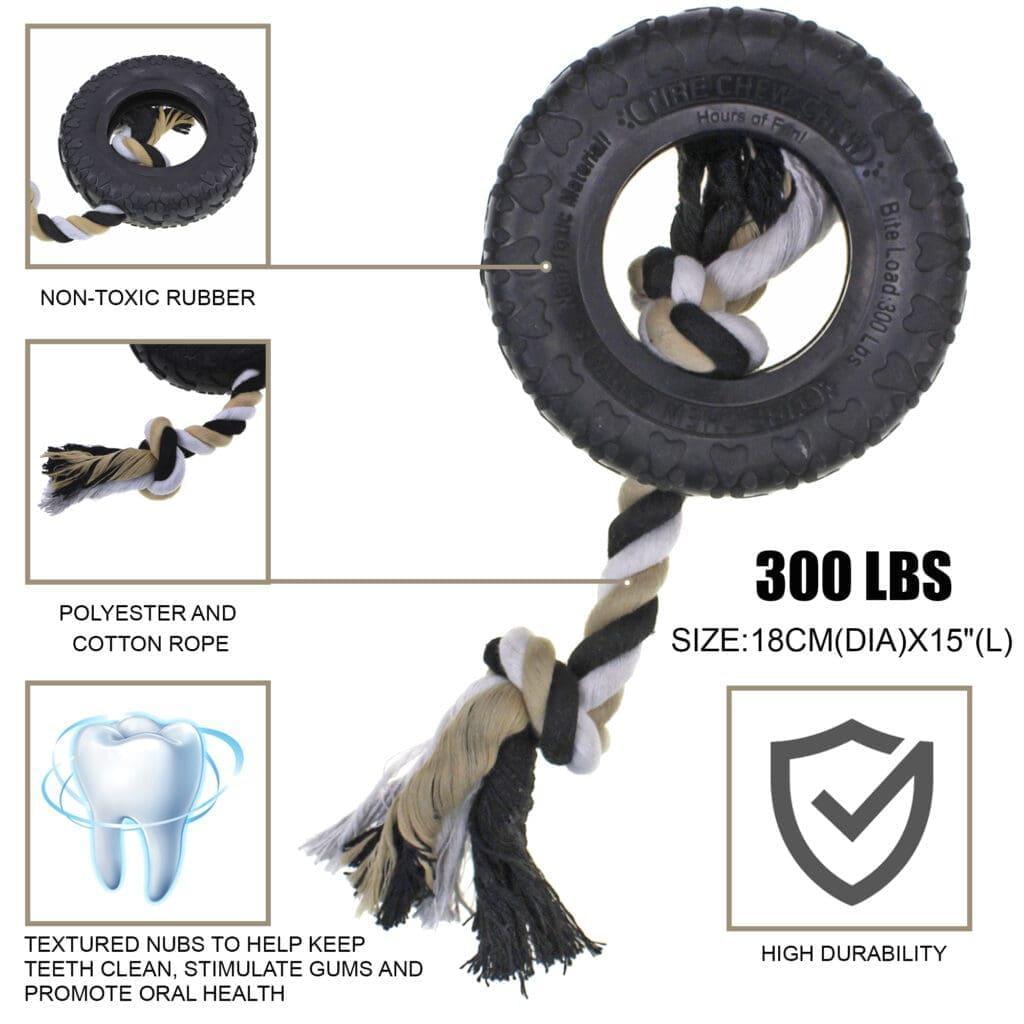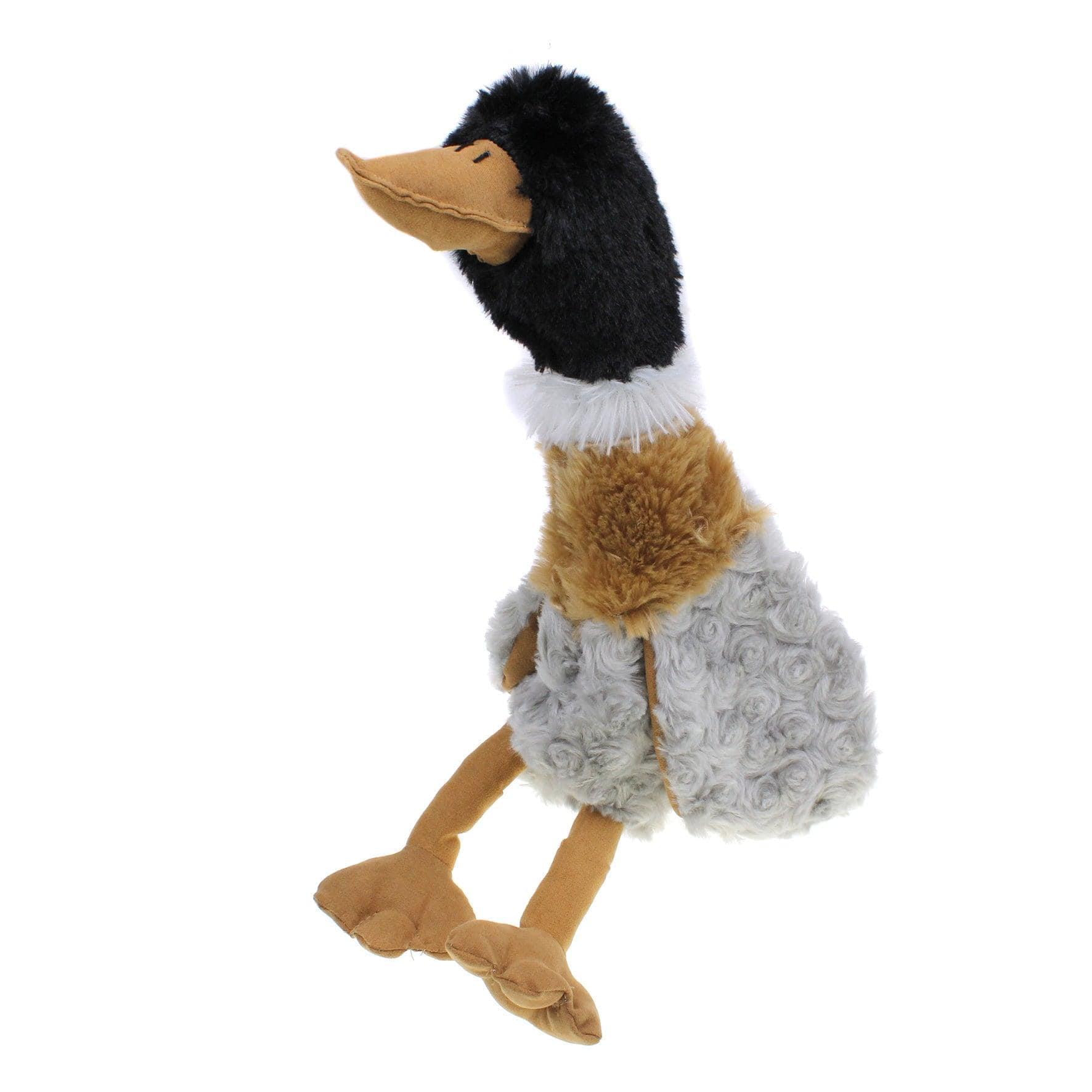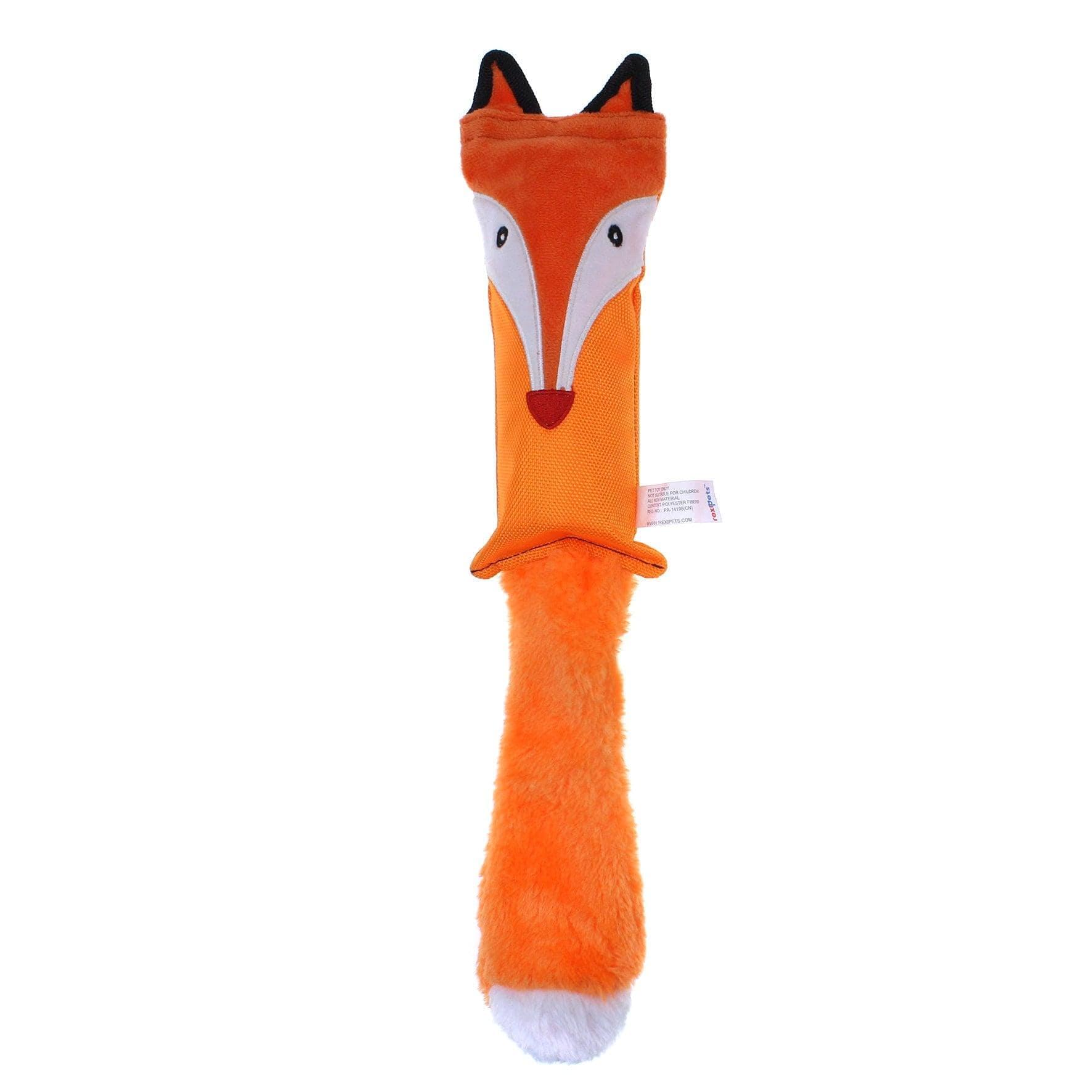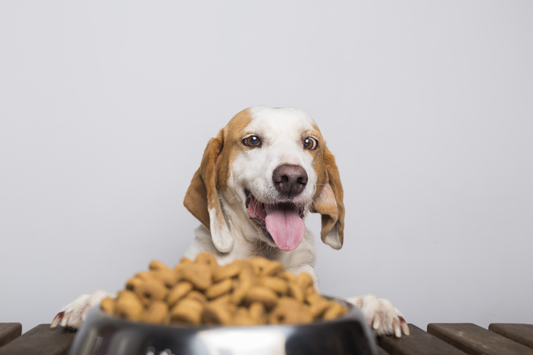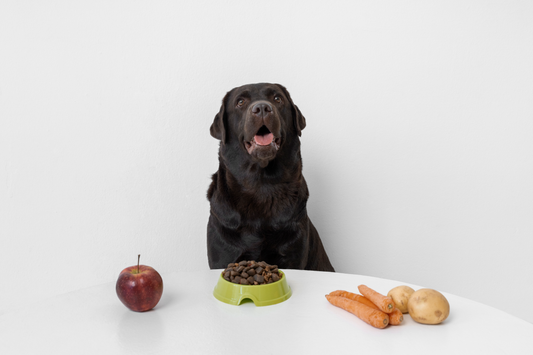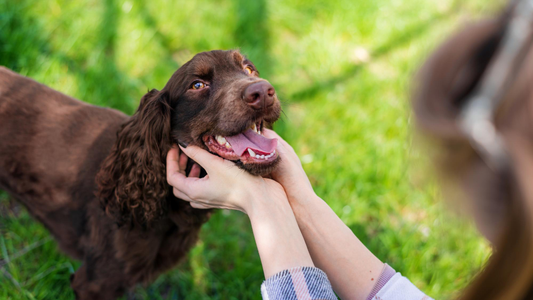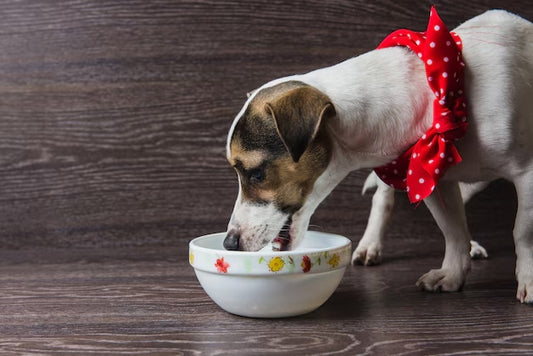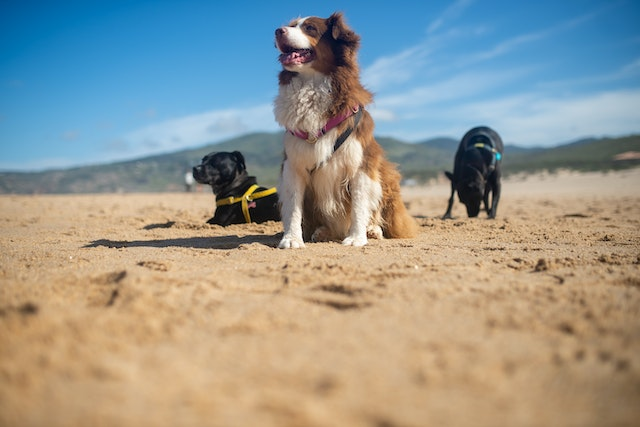
As a responsible pet parent, are you often concerned about your dog's health? Are deficiencies one of your biggest concerns regarding your dog's health and well-being?
Don't worry. Today, we're looking into one of the most common deficiencies found in dogs - zinc deficiency.
Zinc is one crucial element that often flies under the radar. But what you don't know is that zinc is very important for your dog's health. So, if you're on the hunt for the best dog food to combat zinc deficiency and keep your pup happy and healthy, you are at the right place!
This article will explore the top dog foods tailored to counter zinc deficiency, making your loyal companion get the best care possible. We'll also look into signs of zinc deficiency you should be looking for, along with zinc toxicity to dogs. So, let's dive in and find out all you need to know to keep your dog healthy and thriving.
4 Best Dog Foods With Zinc Deficiency 2023
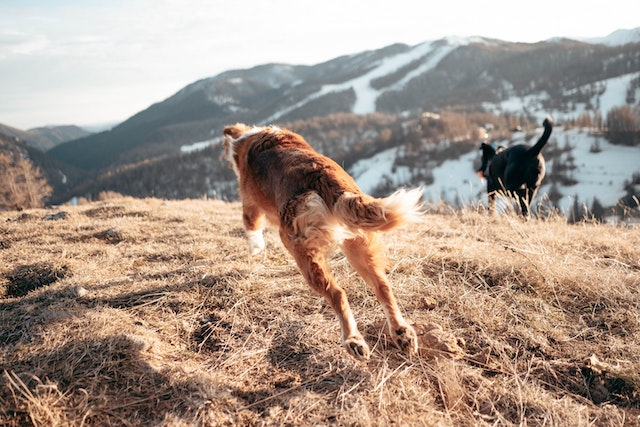
Zinc is like the unsung hero of your dog's nutrition, doing all sorts of behind-the-scenes work to keep your furry pal healthy.
When your pup doesn't get enough zinc in their diet, it can result in problems like skin troubles, slower healing of wounds, and a weaker immune system that makes them more vulnerable to getting sick.
This is why we're going to look into the best dog food that can help counter zinc deficiency in dogs.
1) Nulo Limited Ingredient Grain-Free Dry Food

When tackling zinc deficiency in dogs, the Nulo Limited Ingredient Grain-Free Dry Food takes the crown as the best commercial dog food on the market. This salmon-based dry food is a game-changer, packed with the zinc your pup needs to thrive.
One standout feature is its focus on zinc methionine and zinc sulfate, two forms of zinc that are highly absorbable by your dog's body. This means your furry friend can make the most of every bite to combat that zinc deficiency effectively.
What sets this food apart is its minimalist ingredient list. With fewer components, your dog's digestive system can work smoothly without any unnecessary interference from extra ingredients. This ensures that your dog can digest and absorb the zinc more effectively.
Salmon takes center stage as the main ingredient, and it's not just any salmon. This fish is a tasty protein source and contains fish oils rich in zinc. This double whammy of zinc goodness ensures your dog gets a substantial dose with every meal.
Plus, it's grain-free, which is essential for zinc-deficient dogs. Grains can sometimes hinder zinc absorption, so this grain-free formula ensures your pup gets the most out of its zinc intake.
In summary, Nulo Limited Ingredient Grain-Free Dry Food is a powerhouse for addressing zinc deficiency in dogs. It focuses on highly absorbable zinc sources, a minimalist ingredient list, and a salmon-rich formula. All this makes it a top choice for pet owners looking to provide the best care for their furry companions.
With this outstanding dog food, your dog's health and well-being are in good hands.
2) Purina Pro Plan Sensitive Skin and Stomach Dog Food Salmon

If your furball is dealing with some skin and tummy troubles, it might be due to zinc deficiency. You might want to check out Purina Pro Plan Adult Sensitive Skin & Stomach Salmon & Rice Formula Dry Dog Food.
Now, what makes this dog food stand out?
Well, it's packed with real salmon as its star ingredient, which is fantastic because it's not only delicious but also rich in protein. The more natural protein included in the diet, the better the zinc levels.
And no, you don't have to worry about artificial stuff – as it is free from artificial colors or flavors.
Salmon is a superhero when it comes to omega-3 fatty acids. Omega-3 fatty acids help keep your pup's joints in tip-top shape. And for that shiny coat and healthy skin, they've thrown in some sunflower oil with omega-6 fatty acids and vitamin A.
This formula is loaded with minerals and antioxidants to boost your immune system and keep your furry friend as healthy as possible. That's not it. For easy digestion, they have oatmeal, which is gentle on the tummy, and some natural prebiotic fiber like a fancy feast for the good bacteria in your dog's gut.
3) Blue Buffalo Wilderness Rocky Mountain Recipe

The closer the meat gets to its natural, raw state, the more zinc it holds onto. So, even if the whole Bones and Raw Food isn't quite your dog's jam, no worries! Blue Buffalo Wilderness, Rocky Mountain Recipe, is like the next best option.
What's the star of the show here?
Well, it's deboned bison. This isn't just any bison; it's sourced from the USA. Bison is a unique and high-quality source of zinc, which your zinc-deficient pup will appreciate.
But wait, there's more goodness packed in there!
They've got LifeSource Bits, like tiny treasure chests of zinc and other essential minerals. It's like a little boost of nutrition with every bite.
This formula is also easy on your dog's tummy and grain-free for sensitive stomachs. So, in a nutshell, Blue Buffalo Wilderness Rocky Mountain Recipe has plenty of zinc to help out the zinc-deficient pups and makes for a solid alternative to a raw diet.
Your dog's tummy and taste buds will thank you!
4) Taste of the Wild — High Prairie Grain-Free

When it comes to High Prairie grain-free dog food, it's all about the meaty goodness! It's like a meat-lover dream come true, with Buffalo, Lamb, Chicken, Venison, and Beef. It's loaded with all of them.
And we know meat is the ultimate zinc source, and this dog food is loaded with it. They promise at least 150 mg/kg of zinc on the label, which is more than enough for your average adult dog.
This formula goes the extra mile to ensure your dog's body can absorb all that zinc goodness. It is also manufactured to be free from any ingredients that might block zinc absorption, like grains, gluten, or random additives.
It's a versatile choice, too. Whether you've got a small pup or a big one, this food is designed to cater to a wide range of breeds, even the large and giant ones.
However, we would recommend you explore options if your dog is super active and athletic so that you can get something specially customized for their high-energy needs.
Other Sources of Zinc for Dogs
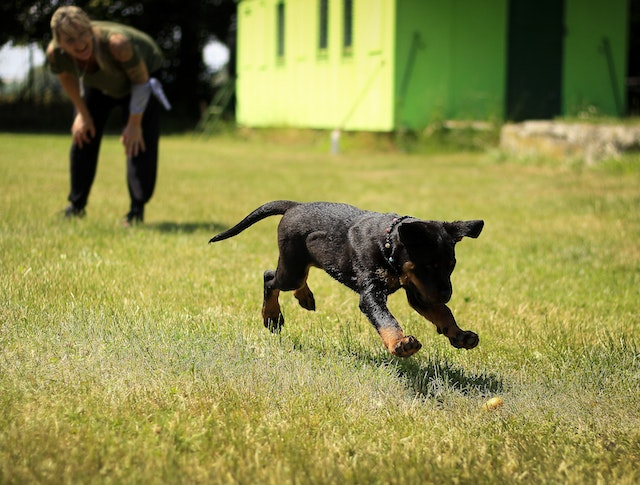
While giving your dog the best zinc-rich dog food is the ideal solution for zinc deficiency, there are some other ways to sprinkle some extra zinc goodness into their diet.
The key here is ensuring your dog gets a well-rounded diet full of essential nutrients.
So, consider these extra sources of zinc to keep your furry friend in good health.
1) Raw Food
When it comes to boosting your dog's zinc intake, raw food can be a game-changer. Raw meat and organs are packed with zinc, making them a fantastic natural source of this essential nutrient.
Organs like liver, kidney, and heart are rich in zinc. So, including them in your dog's diet can contribute to their zinc levels. However, it's essential to ensure that the raw meat is high quality and handled safely to prevent potential health risks.
2) Eggs
Eggs are another great addition to your dog's diet for that zinc boost. Not only are they a good source of zinc, but they also provide a wealth of protein and essential vitamins and minerals.
However, feeding eggs in moderation is essential, as they can be high in calories. By doing so, you can get the benefits of eggs without overloading your dog's diet with too many calories.
3) Pumpkin Seeds
Pumpkin seeds are a hidden gem in zinc-rich foods for dogs. They offer a natural source of zinc and come with the added bonus of being high in fiber.
You can easily add pumpkin seeds to your dog's meals by sprinkling them on top of their food or mixing them into a tasty treat.
4) Supplements
While providing your dog with a balanced diet should ideally meet their zinc needs, you can also consider adding zinc supplements.
However, it's essential to consult your veterinarian before introducing any supplements. Giving your dog too much zinc can be harmful as well.
Signs of Zinc Deficiency in Dogs
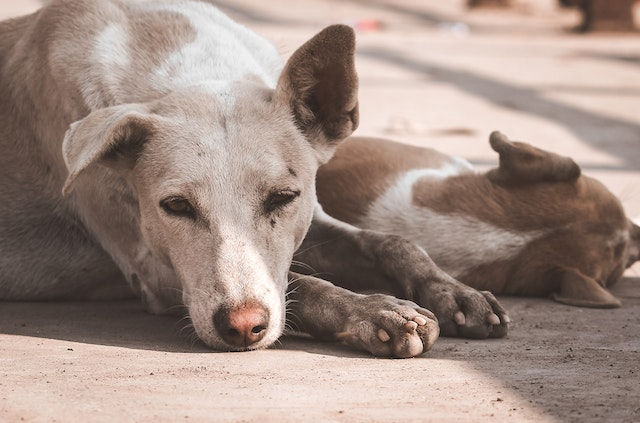
The signs of zinc deficiency in dogs can be extremely subtle and, thus, easily overlooked.
Common signs include
- Hair loss
- Stunted growth
- Lack of energy
- Thickened footpads
- Irritation and moisture between the toes
- Sores and scabs around the mouth and eyes.
Male dogs might lose interest in breeding, while females may not enter their heat cycles. When it comes to zinc deficiency during pregnancy, there's a risk of stillborn puppies and physical or mental abnormalities in the puppies.
The worst part?
Even vets can sometimes miss these signs, which can be a mystery illness for our furry friends. So, watch out for these signs. And if you suspect something's up, it's always a good idea to chat with your vet.
Zinc Toxicity to Dogs

Zinc can really mess with your dog's stomach. If they've been poisoned by zinc, they're likely to show signs like throwing up, diarrhea, depression, and a general loss of appetite.
Here's where it gets more serious: zinc poisoning can mess with your dog's red blood cells, leading to anemia. When this happens, your pet might feel weak, their gums could turn pale, their heart might race, and they might breathe faster and harder.
You might also notice their eyes or skin turning yellow, their poop becoming orange, and their pee looking reddish or dark yellow.
In some really bad cases, zinc can cause damage to the liver, kidneys, heart, or pancreas. That's when you might notice your pet drinking and peeing a lot more, losing weight, having tummy pains, or their organs getting bigger. In rare situations, they could even have problems with coordination and seizures.
How is Zinc Poisoning Diagnosed?
Well, most of the time, vet see these symptoms, and they'll do blood tests to check their red blood cells, liver, and kidneys. If they suspect zinc poisoning, they might take X-rays of their stomach for a more accurate diagnosis.
How is it treated?
Treatment for zinc poisoning in pets varies based on their symptoms.
If a pet has only ingested a small amount of zinc ointment and their symptoms are mild, treatment may involve medications to help with nausea, antacids, and anti-diarrheal drugs.
Hospitalization is necessary for more severe cases where the poisoning is severe. This involves administering fluids directly through an IV, potentially giving blood transfusions, and using medications to help remove the zinc from the body, known as chelation therapy.
In cases of severe poisoning, ongoing monitoring is crucial. Regular blood tests are performed to monitor the red blood cell count and check the function of the kidneys and liver to ensure the pet is recovering properly.
So, the old saying "too much of a good thing" holds true for zinc regarding our furry companions. While zinc is undeniably crucial for your dog's well-being, like many nutrients, it can become problematic if not consumed correctly.
This balance is crucial because too little zinc can result in deficiencies and health problems, while too much can lead to toxicity. The key takeaway here is moderation.
As a responsible pet owner, you must be mindful of your dog's nutritional needs and ensure they get the right amount of zinc in their diet.
Final Words
So, there you have it, folks! We've dived deep into zinc and how it affects your furry best friend. Remember, zinc is like the secret ingredient for a healthy pup, but too much of a good thing can go south.
We've talked about some top dog food brands like Blue Buffalo, Nulo, and Purina Pro Plan that offer great options to tackle zinc deficiency.
But here's the deal – it's not just about the food. You've got to keep an eye on your dog's overall zinc intake, whether it's from their supplements or other food sources.
So, watch out for zinc deficiency symptoms, along with zinc poisoning symptoms, to cover all bases when it comes to the well-being of your furry best friend.
Frequently Asked Questions
What foods are high in zinc for dogs
Zinc-rich foods for your furry friend include meat, like beef, chicken, duck, lamb, and pork, especially red meat, along with fish, including salmon and sardines. Moreover, eggs are packed with zinc.
Nuts offer a crunchy source of zinc if you are looking for some variety. Then there are also seeds, such as pumpkin, sesame, and hemp seeds, that are tiny powerhouses of zinc goodness.
How do I get zinc for my dog?
You can provide zinc for your dog through their regular diet by choosing high-quality dog food, checking ingredient labels for zinc content, and incorporating zinc-rich foods like red meat, poultry, fish, eggs, and certain nuts and seeds.
It's essential to consult your veterinarian if you suspect a zinc deficiency or are considering using zinc supplements. Supplements like zinc amino acid chelate ensure your dog's specific needs are met, but make sure you are maintaining a balanced diet for their overall health.
Are certain dog breeds more prone to zinc deficiency?
Zinc deficiency can have a genetic link, especially in breeds from colder regions like Huskies and Malamutes. Moreover, it tends to pop up more often in giant dog breeds like Great Danes and Saint Bernards. Even large breeds like German Shepherds and Dobermans can be commonly affected by zinc deficiency.
